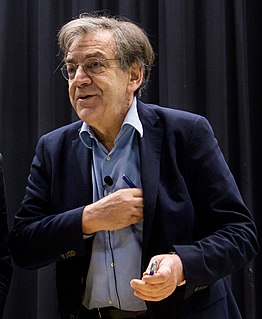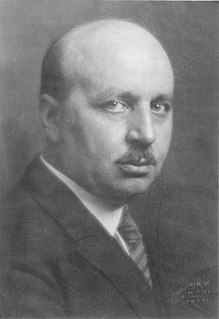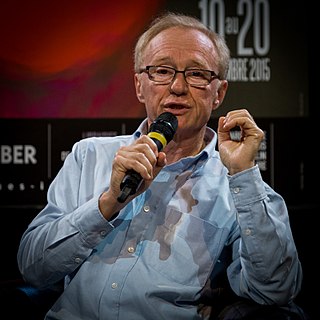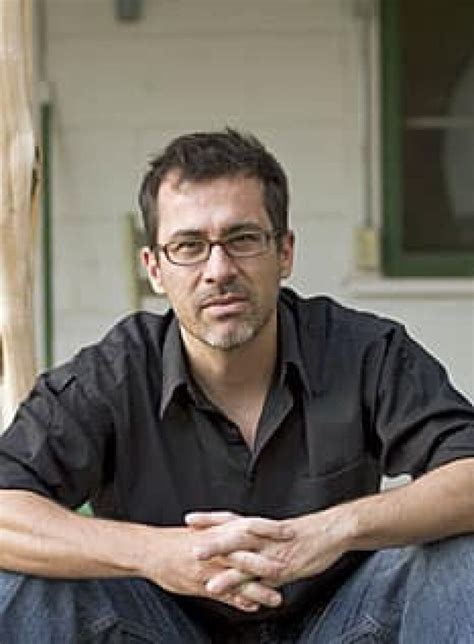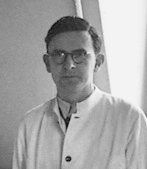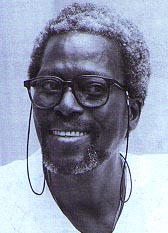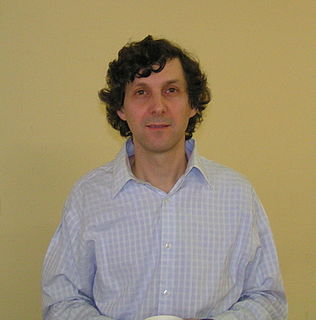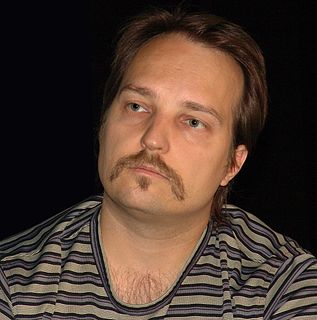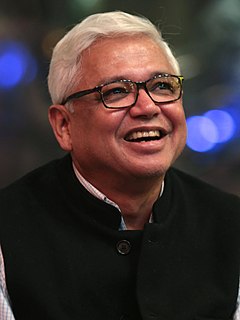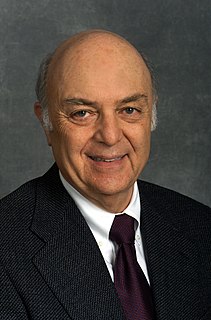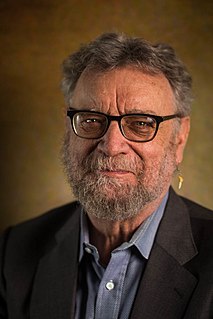Top 1200 Language Quotes & Sayings - Page 20
Explore popular Language quotes.
Last updated on April 16, 2025.
Mohammed knew that most people are terribly cowardly and stupid. That is why he promised two beautiful women to every courageous warrior who dies in battle. This is the kind of language a soldier understands. When he believes that he will be welcomed in this manner in the afterlife, he will be willing to give his life, he will be enthusiastic about going to battle and not fear death. You may call this primitive and you may laugh about it, but it is based on deeper wisdom. A religion must speak a man's language.
Sound words can't be understood through formal study of the language alone. They're felt when you immerse yourself in the culture or lifestyle that becomes a part of you. The Japanese language is abundant with onomatopoeia. Even though I've lived in Japan a long time, sound words are still an uncertain territory. And I think new words are being created every day. Even when I don't know a word I can sometimes connect it to a meaning using the sensations produced by the sounds, which feels like I'm playing with words.
I think that metaphor really is a key to explaining thought and language. The human mind comes equipped with an ability to penetrate the cladding of sensory appearance and discern the abstract construction underneath - not always on demand, and not infallibly, but often enough and insightfully enough to shape the human condition. Our powers of analogy allow us to apply ancient neural structures to newfound subject matter, to discover hidden laws and systems in nature, and not least, to amplify the expressive power of language itself.
Mathematics never reveals man to the degree, never expresses him in the way, that any other field of human endeavour does: the extent of the negation of man's corporeal self that mathematics achieves cannot be compared with anything. Whoever is interested in this subject I refer to my articles. Here I will say only that the world injected its patterns into human language at the very inception of that language; mathematics sleeps in every utterance, and can only be discovered, never invented.
As a poet and writer, I deeply love and I deeply hate words. I love the infinite evidence and change and requirements and possibilities of language; every human use of words that is joyful, or honest or new, because experience is new... But as a Black poet and writer, I hate words that cancel my name and my history and the freedom of my future: I hate the words that condemn and refuse the language of my people in America.
Language is virtually always pathological; hence the solution is to move as fast and far as possible from language to experience, from linguistic to experimental or psychological philosophy. In order to know that we are not in the linguistic maze, we need to determine, according to Berkeley, whether the things we are talking about exist; hence we need to look for the relevant perceptions. For him, this usually means retiring into himself and trying to imagine whether x exists, having formed the best definition possible of x.
Nothing is so easy as to deceive one’s self when one does not lack wit and is familiar with all the niceties of language. Language is a prostitute queen who descends and rises to all roles. Disguises herself, arrays herself in fine apparel, hides her head and effaces herself; an advocate who has an answer for everything, who has always foreseen everything, and who assumes a thousand forms in order to be right. The most honorable of men is he who thinks best and acts best, but the most powerful is he who is best able to talk and write
The price a world language must be prepared to pay is submission to many different kinds of use. The African writer should aim to use English in a way that brings out his message best without altering the language to the extent that its value as a medium of international exchange will be lost. He should aim at fashioning out an English which is at once universal and able to carry his peculiar experience.
Some innate capacity - some part of the human genetic endowment - enters into language acquisition. That much is uncontroversial among those who believe that humans are part of the natural world. If it were not true, would be a miracle that my granddaughter reflexively identified some elements of the blooming buzzing confusion as language-related and went on to acquire capacities of the kind that you and I are now exercising, while her pet kitten (chimp, songbird, bee...), presented with exactly the same data, could not take the first step, let alone the later ones.
I know that some subjective experiences of sex are very firm and fundamental, even unchangeable. They can be so firm and unchanging that we call them "innate". But given that we report on such a sense of self within a social world, a world in which we are trying to use language to express what we feel, it is unclear what language does that most effectively. I understand that "innate" is a word that conveys the sense of something hired-wired and constitutive. I suppose I would be inclined to wonder whether other vocabularies might do the job equally well.
I used to listen to so much doo-wop, and I've talked a lot about gospel music, but I realised a lot of that language came from doo-wop music. You know, "I Asked the Lord Above," "Heaven Sent Me an Angel." That's rock-'n-roll, and that's where a lot of this language is coming from. Also, I've said before that as soon as you start having a conversation with Jesus in a song you know you're dealing with issues of morality and how fragile it is to be human. It's a shortcut to putting those ideas across.
Each man is contained and constrained, on entering social life, to fit his own life in, just as he fits his words and thoughts into a language that was formed without and before him and which is impervious to his power. Entering the game, as it were, whether of belonging to a nation or of using a language, a man enters arrangements which it does not fall to him to determine, but only to learn and respect the rules.
By the time the child can draw more that scribble, by the age of four or five years, an already well-formed body of conceptual knowledge formulated in language dominates his memory and controls his graphic work. Drawings are graphic accounts of essentially verbal processes. As an essentially verbal education gains control, the child abandons his graphic efforts and relies almost entirely on words. Language has first spoilt drawing and then swallowed it up completely.
Most English speakers do not have the writer's short fuse about seeing or hearing their language brutalized. This is the main reason, I suspect, that English is becoming the world's universal tongue: English-speaking natives don't care how badly others speak English as long as they speak it. French, once considered likely to become the world's lingua franca, has lost popularity because those who are born speaking it reject this liberal attitude and become depressed, insulted or insufferable when their language is ill used.
I write, and I feel how the correct and precise use of words is sometimes like a remedy to an illness. Like a contraption for purifying the air, I breathe in and exhale the murkiness and manipulations of linguistic scoundrels and language rapists of all shades and colors. I write and I feel how the tenderness and intimacy I maintain with language, with its different layers, its eroticism and humor and soul, give me back the person I used to be, me, before my self became nationalized and confiscated by the conflict, by governments and armies, by despair and tragedy.
Reachable, near and not lost, there remained in the midst of the losses this one thing: language. It, the language, remained, not lost, yes, in spite of everything. But it had to pass through its own answerlessness, pass through frightful muting, pass through the thousand darknesses of deathbringing speech. It passed through and gave back no words for that which happened; yet it passed through this happening. Passed through and could come to light again, “enriched” by all this.
David Fincher is probably the best comprehensive director in terms of being a manger of a process that must drive forward. He has such confident command of cinema language and visual language and script and performance. He knows more about f-stops than any cameraman, he knows more about lighting than any gaffer, he is a wonderful writer, and he can give you a good line reading. Under pressure, he is the kind of guy who you will just dive in with and trust and follow because his vision is so intense.
The way in which the photograph records experience is also different from the way of language. Language makes sense only when it is presented as a sequence of propositions. Meaning is distorted when a word or sentence is, as we say, taken out of context; when a reader or listener is deprived of what was said before, and after. But there is no such thing as a photograph taken out of context, for a photograph does not require one. In fact, the point of photography is to isolate images from context, so as to make them visible in a different way.
The revival of Hebrew, as a spoken language, is a fascinating story, which I'm afraid I cannot squeeze into a few sentences. But, let me give you a clue. Think about Elizabethan English, where the entire English language behaved pretty much like molten lava, like a volcano in mid-eruption. Modern Hebrew has some things in common with Elizabethan English. It is being reshaped and it's expanding very rapidly in various directions. This is not to say that every one of us Israeli writers is a William Shakespeare, but there is a certain similarity to Elizabethan English.
But as the old Confusion of tongues was laudable, when men who were of one language in wickedness and impiety, even as some now venture to be, were building the Tower; for by the confusion of their language the unity of their intention was broken up, and their undertaking destroyed; so much more worthy of praise is the present miraculous one. For being poured from One Spirit upon many men, it brings them again into harmony. And there is a diversity of Gifts, which stands in need of yet another Gift to discern which is the best, where all are praiseworthy.
In I Praise My Destroyer, Diane Ackerman demonstrates once again her love for the specific language that rises from the juncture of self and the natural world, and her skillful use of that language. Whether she turns her attention to the act of eating an apricot 'the color of shame and dawn,' or to 'the omnipotence of light,' or to grief when 'All the greens of summer have blown apart,' her linking of unique images, her energetic wit and whimsy, her compassionate investment in life, always bring new pleasures and perceptions to the reader.
the way in which a faith community shapes language about God implicity represents what it takes to be the highest good, the profoundest truth, the most appealing beauty. ... While officially it is rightly and consistently said that God is spirit and so beyond identification with either male or female sex, yet the daily language of preaching, worship, catechesis, and instruction conveys a different message: God is male, or at least more like a man than a woman, or at least more fittingly addressed as male than as female.
The clerical work is par for the course. "Keep on file in numerical order" means throw in wastebasket. You'll soon learn the language. "Let it be a challenge to you" means you're stuck with it; "interpersonal relationships" is a fight between kids; "ancillary civic agencies for supportive discipline" means call the cops; "Language Arts Dept." is the English office; "literature based on child's reading level and experiential background" means that's all they've got in the Book Room; "non-academic-minded" is a delinquent; and "It has come to my attention" means you're in trouble.
It is often said that experiments should be made without preconceived ideas. That is impossible. Not only would it make every experiment fruitless, but even if we wished to do so, it could not be done. Every man has his own conception of the world, and this he cannot so easily lay aside. We must, example, use language, and our language is necessarily steeped in preconceived ideas. Only they are unconscious preconceived ideas, which are a thousand times the most dangerous of all.
When you choose a language, youre also choosing a community. The programmers youll be able to hire to work on a Java project wont be as smart as the ones you could get to work on a project written in Python. And the quality of your hackers probably matters more than the language you choose. Though, frankly, the fact that good hackers prefer Python to Java should tell you something about the relative merits of those languages.
The Creation speaks a universal language, independent of human speech or human language, multiplied and various as they be. It is an ever-existing original, which every man can read. It cannot be forged; it cannot be counterfeited; it cannot be lost; it cannot be altered; it cannot be suppressed. It does not depend upon the will of man whether it shall be published or not; it publishes itself from one end of the earth to the other. It preaches to all nations and to all worlds; and this Word of God reveals to man all that is necessary for man to know of God.
Men who allow their love of power to give them a distorted view of the world are to be found in every asylum: one man will think he is the Governor of the Bank of England, another will think he is the King, and yet another will think he is God. Highly similar delusions, if expressed by educated men in obscure language, lead to professorships of philosophy; and if expressed by emotional men in eloquent language, lead to dictatorships.
We hypostatize information into objects. Rearrangement of objects is change in the content of the information; the message has changed. This is a language which we have lost the ability to read. We ourselves are a part of this language; changes in us are changes in the content of the information. We ourselves are information-rich; information enters us, is processed and is then projected outward once more, now in an altered form. We are not aware that we are doing this, that in fact this is all we are doing.
The sovereignty of the States is the language of the Confederacy and not the language of the Constitution. The latter contains the emphatic words. This Constitution and the laws of the United States which shall be made in pursuance thereof and all treaties made or which shall be made under the authority of the United States, shall be the supreme law of the land and the judges in every State shall be bound thereby, anything in the constitution or laws of any State to the contrary notwithstanding
Money, after all, is an abstract artifact, like language - merely symbolized by the paper or coin or whatever. If you can fully grasp its abstractedness, especially in the computer age, it becomes quite clear that no group can monopolize this abstraction, except through a series of swindle. If the usurers had been bolder, they might have monopolized language as well as currency, and people would be saying we can't write more books because we don't have enough words, the way they now say we can't build starships, because we don't have enough money.
But this is predicated upon the man's becoming in very fact an American and nothing but an American. If he tries to keep segregated with men of his own origin and separated from the rest of America, then he isn't doing his part as an American. There can be no divided allegiance here. . . We have room for but one language here, and that is the English language, for we intend to see that the crucible turns our people out as Americans, of American nationality, and not as dwellers in a polyglot boarding-house; and we have room for but one soul loyalty, and that is loyalty to the American people.
All my desires are born of my dreams. And I have proven my love with words. To what fantastic creatures have I entrusted myself, in what dolorous and ravishing world has my imagination enclosed me? I am sure of having been loved in the most mysterious of domains, my own. The language of my love does not belong to human language, my human body does not touch the flesh of my love. My amorous imagination has always been constant and high enough so that nothing could attempt to convince me of error.
Magicians and scientists are, on the face of it, poles apart. Certainly, a group of people who often dress strangely, live in a world of their own, speak a specialized language and frequently make statements that appear to be in flagrant breach of common sense have nothing in common with a group of people who often dress strangely, speak a specialized language, live in ... er.
The lyrics are not an important thing to me. In fact, it can be a distraction. If I knew the language enough to know it was a horrible love song with stupid lyrics - like most of the popular songs are today in the English language that I hear - then it would be much more of a turnoff then if it would allow me to interpret it from the expressive capabilities of the vocalizing or of the sound itself, which allows me to create my own meaning for it, which elevates it into a higher piece of work for me.
The Iranian people were converted to Islam not very much longer after the conquest of the Arab world by Islam, but they refused to adopt the Arabic language, and it's a great point of pride to them that Persian culture and the Persian language and Persian literature survived the conversion to Islam. And the conversion to Islam also was for most of them not the Sunni majority form, but the Shia one. So there's a great discrepancy between Iranian society and many other of what we think of as Arab Muslim States and systems.
It is almost impossible to translate verbally and well at the same time; for the Latin (a most severe and compendious language) often expresses that in one word which either the barbarity or the narrowness of modern tongues cannot supply in more. ...But since every language is so full of its own proprieties that what is beautiful in one is often barbarous, nay, sometimes nonsense, in another, it would be unreasonable to limit a translator to the narrow compass of his author's words; it is enough if he choose out some expression which does not vitiate the sense.
Those who become hyperpolyglots are those who meet two criteria. One, they are exposed to language material. Two, they undertake learning languages as a mission as well as acquiring the personal identity as a language learner.I describe the "neural tribe theory" of hyperpolyglots, arguing that they possess an atypical neurology that is selected by some environments and not others; presumably, there have always been humans walking around with that set of neurological traits or factors, only some of whom actually use those things for languages.
My name is growing all the time, and I’ve lived a very long, long time; so my name is like a story. Real names tell you the story of the things they belong to in my language, in the Old Entish as you might say. It is a lovely language, but it takes a very long time to say anything in it, because we do not say anything in it, unless it is worth taking a long time to say, and to listen to.
It seems a miracle that young children easily learn the language of any environment into which they were born. The generative approach to grammar, pioneered by Chomsky, argues that this is only explicable if certain deep, universal features of this competence are innate characteristics of the human brain. Biologically speaking, this hypothesis of an inheritable capability to learn any language means that it must somehow be encoded in the DNA of our chromosomes. Should this hypothesis one day be verified, then lingusitics would become a branch of biology.
Although our grammar schools are teaching a whole generation computer language to adjust to the technological needs of a Stage II [post survival-focused] society, we have neglected to teach this generation relationship language and conflict resolution skills to address the social and psychological needs of a Stage II society. And when it is taught, in countries like Germany, although called social competence it focuses on workplace teamwork - still on survival, breadwinner oriented work goals.
One has to choose between engaging in stylistic research or the mere recording of facts. I feel that a filmmaker must go beyond the recording of facts. Moreover, I believe that Africans, in particular, must reinvent cinema. It will be a difficult task because our viewing audience is used to a specific film language, but a choice has to be made: either one is very popular and one talks to people in a simple and plain manner, or else one searches for an African film language that would exclude chattering and focus more on how to make use of visuals and sounds.
And there are also languages that divide nouns into much more specific genders. The African language Supyire from Mali has five genders: humans, big things, small things, collectives, and liquids. Bantu languages such as Swahili have up to ten genders, and the Australian language Ngan’gityemerri is said to have fifteen different genders, which include, among others, masculine human, feminine human, canines, non-canine animals, vegetables, drinks, and two different genders for spears (depending on size and material).
The experimental film scene was very much misogynistic as well. I don't know if you have read what little attention was given to the films of Joyce Wieland, who was the wife of Michael Snow. Michael was the "genius" and she was not. If you look at the films they're wonderful, but very different. Michael was very proud of the films too, so it was not coming from him. It was coming from the general environment. I think both Chantal Akerman and I shared that. We wanted to find a language, which was the language of women.
Part of what makes a language 'alive' is its constant evolution. I would hate to think Britain would ever emulate France, where they actually have a learned faculty whose job it is to attempt to prevent the incursion of foreign words into the language. I love editing Harry with Arthur Levine, my American editor-the differences between 'British English' (of which there must be at least 200 versions) and 'American English' (ditto!) are a source of constant interest and amusement to me.
The statement "I am in pain" may be one piece of evidence for the conclusion that the speaker is in pain, but it is not the only possible evidence, and since people sometimes tell lies, not even the best possible evidence. Even if there were stronger grounds for refusing to attribute pain to those who do not have language, the consequences of this refusal might lead us to reject the conclusion. Human infants and young children are unable to use language. Are we to deny that a year-old child can suffer?
I studied Comparative Literature at Cornell. Structuralism was real big then. The idea of reading and writing as being this language game. There's a lot of appeal to that. It's nice to think of it as this playful kind of thing. But I think that another way to look at it is "Look, I just want to be sincere. I want to write something and make you feel something and maybe you will go out and do something." And it seems that the world is in such bad shape now that we don't have time to do nothing but language games. That's how it seems to me.
The problem with natural language processing and the thing that really holds the technology back, is that when it crashes and burns, it's horrific. I think we would be in a position to really take a serious look at it, once two things happen. The interesting thing about a dialogue-choice system is that we've devoted so much into all kinds of other systems for processing, and dialogue choices use zero processing. So suddenly, if you want to have a great natural language processor, you need to dial down your graphics to make it work.
Once I spoke the language of the flowers, Once I understood each word the caterpillar said, Once I smiled in secret at the gossip of the starlings, And shared a conversation with the housefly in my bed. Once I heard and answered all the questions of the crickets, And joined the crying of each falling dying flake of snow, Once I spoke the language of the flowers. . . . How did it go? How did it go?
I think it's good for anybody to learn languages. Americans are particularly limited in that way. Europeans less so... We're beginning to have Spanish move in on English in the states because of all the people coming from Hispanic countries... and we're beginning to learn some Spanish. And I think that's a good thing... Only having one language is very limiting... You get to think that's the way the human race is made; there's only one language worth speaking... Well, this isn't good for English.
A most important, but also most elusive, aspect of any tool is its influence on the habits of those who train themselves in its use. If the tool is a programming language this influence is, whether we like it or not, an influence on our thinking habits.... A programming language is a tool that has profound influence on our thinking habits.
Every sentence has a truth waiting at the end of it and the writer learns how to know it when he finally gets there. On one level this truth is the swing of the sentence, the beat and poise, but down deeper it's the integrity of the writer as he matches with the language. I've always seen myself in sentences. I begin to recognize myself, word by word, as I work through a sentence. The language of my books has shaped me as a man. There's a moral force in a sentence when it comes out right. It speaks the writer's will to live.
You see, in our family we don't know whether we're coming or going - it's all my grandmother's fault. But, of course, the fault wasn't hers at all: it lay in language. Every language assumes a centrality, a fixed and settled point to go away from and come back to, and what my grandmother was looking for was a word for a journey which was not a coming or a going at all; a journey that was a search for precisely that fixed point which permits the proper use of verbs of movement.
My friend had a brilliant idea. This impressed me. It reflected an immense deal of credit on his brain. But when he expressed it,it lost all value, and enjoyed but a commonplace status. My friend blamed this devaluation on the language. "I hate English," he said. So he studied another language. He mastered it so perfectly that there was no room left in his brain for a brilliant idea. Now he has a grudge against words. He refuses to use them. He prefers to shrug or grunt. A new crop of ideas is growing. They show promise of future refinement.
Philosophy [nature] is written in that great book which ever is before our eyes -- I mean the universe -- but we cannot understand it if we do not first learn the language and grasp the symbols in which it is written. The book is written in mathematical language, and the symbols are triangles, circles and other geometrical figures, without whose help it is impossible to comprehend a single word of it; without which one wanders in vain through a dark labyrinth.
Mr. Bush has squandered the hard-built paternity of 40 years. But so has the party, and so have its leaders. If they had pushed away for serious reasons, they could have separated the party's fortunes from the president's. This would have left a painfully broken party, but they wouldn't be left with a ruined brand,- as they all say, speaking the language of marketing. And they speak that language because they are marketers, not thinkers. Not serious about policy. Not serious about ideas. And not serious about leadership, only followership.
One of the things I love about translation is it obliterates the self. When I'm trying to figure out what Tu Fu has to say, I have to kind of impersonate Tu Fu. I have to take on, if you will, his voice and his skin in English, and I have to try to get as deeply into the poem as possible. I'm not trying to make an equivalent poem in English, which can't be done because our language can't accommodate the kind of metaphors within metaphors the Chinese written language can, and often does, contain.
You can imagine a different world in which a number of species developed with different genetically determined linguistic systems. It hasn't happened in evolution. What has happened is that one species has developed, and the genetic structure of this species happens to involve a variety of intricate abstract principles of linguistic organization that, therefore, necessarily constrain every language, and, in fact, create the basis for learning language as a way of organizing experience rather than constituting something learned from experience.
Gene Wolfe is the greatest writer in the English language alive today. Let me repeat that: Gene Wolfe is the greatest writer in the English language alive today! I mean it. Shakespeare was a better stylist, Melville was more important to American letters, and Charles Dickens had a defter hand at creating characters. But among living writers, there is nobody who can even approach Gene Wolfe for brilliance of prose, clarity of thought, and depth in meaning











